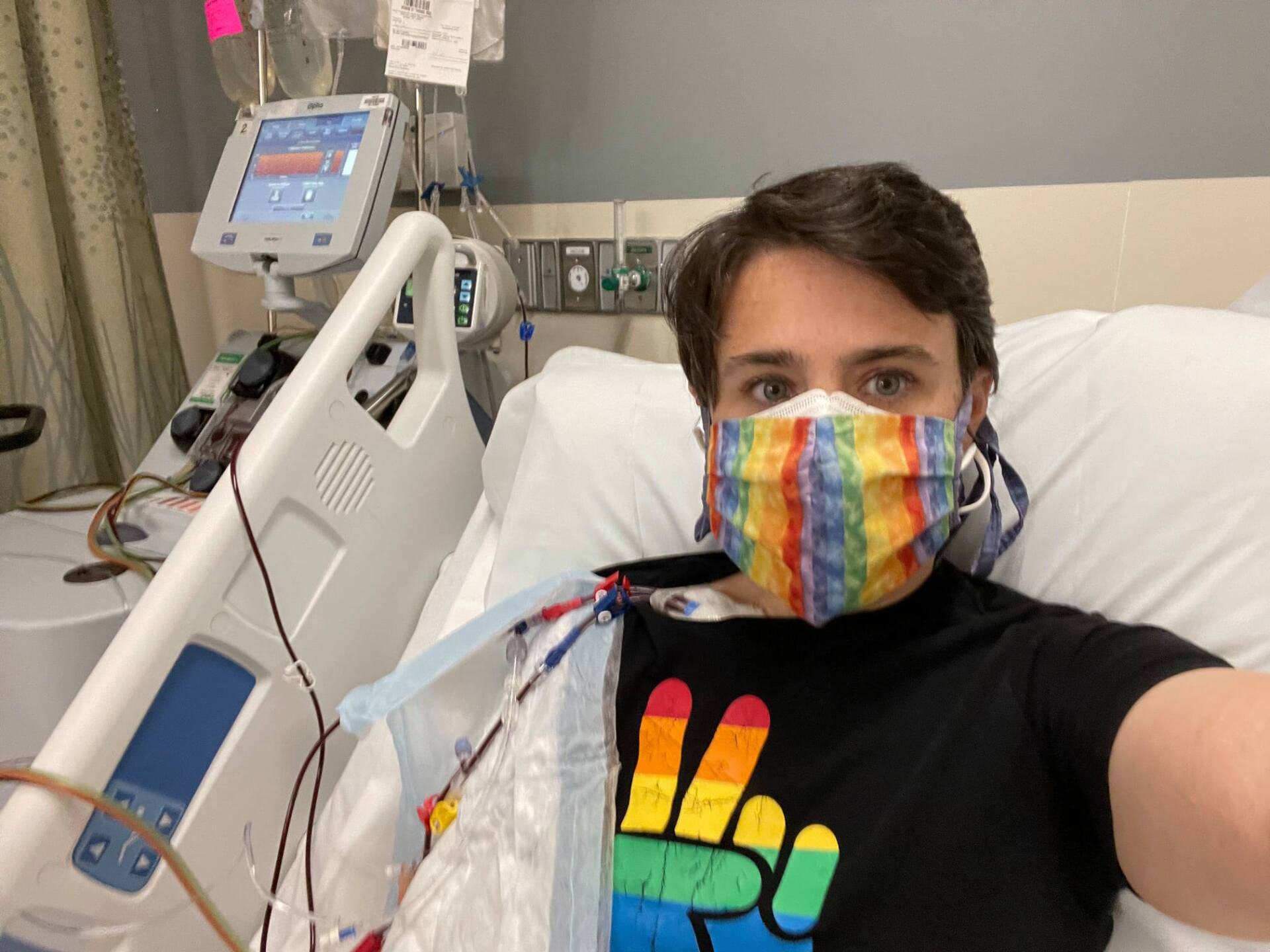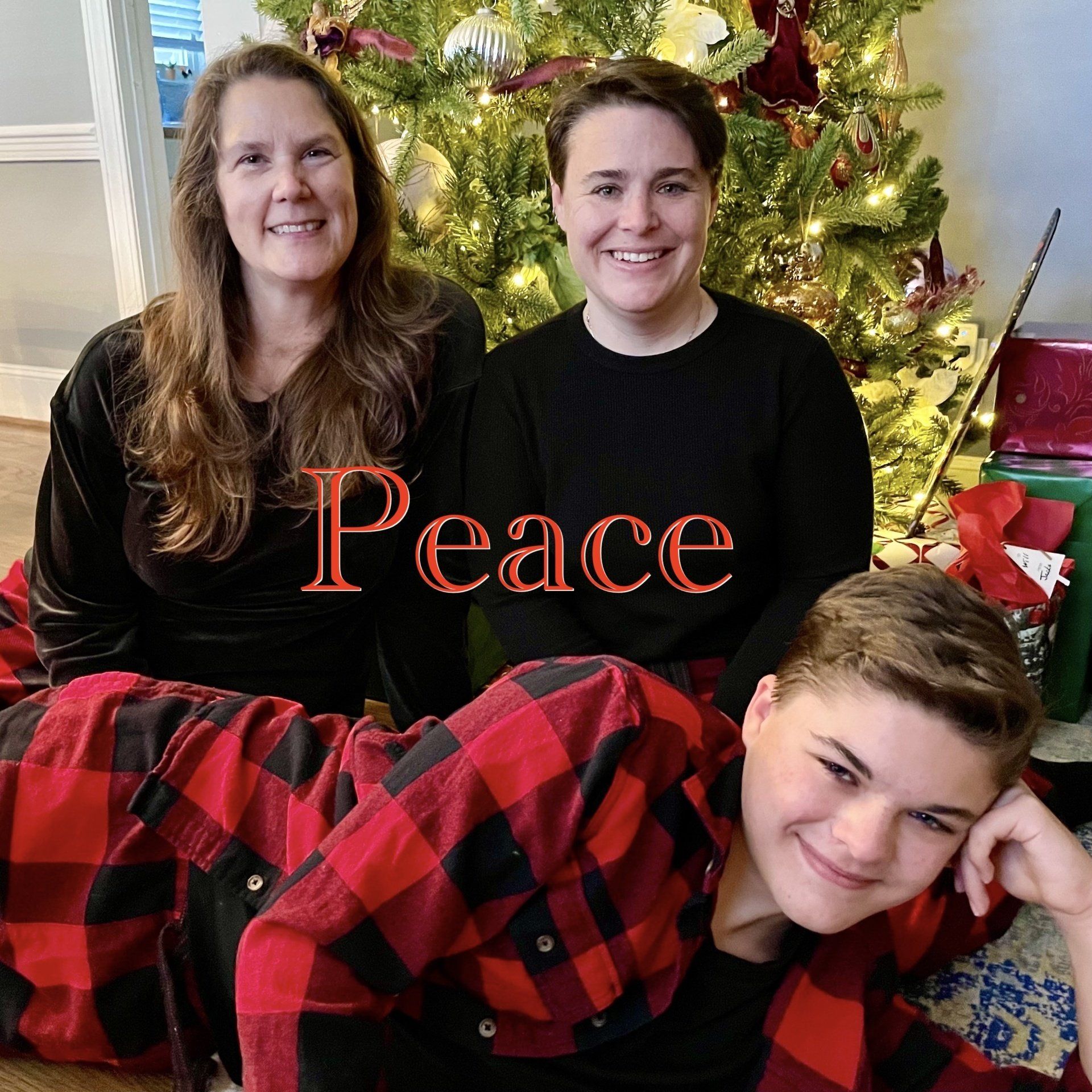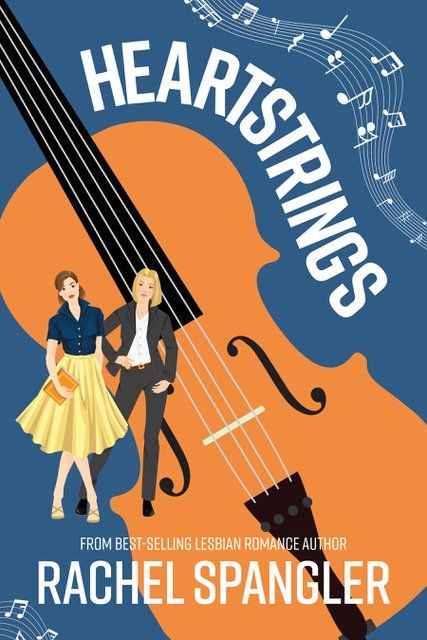Gender: To Play or Get Played
Gender is a subject that’s never far from my mind. Which is to say gender identity, or even more accurately gender performance is never far from my mind, but this week it seems to be knocking directly on my skull, most recently in Kate Christie’s blog about the gender war over children ( here). This reminded me of a conversation we had with Jackie early in the week. We were going to meet another lesbian couple with a child, which is rare since our peer group at home is entirely made of straight couples with young kids. We were excited to show Jackson there were other families like his, but when we told Jackie we were going to meet another kid with two moms, all he said was, “Does she have a cat named Tybalt, too?” Clearly the two-moms thing is still a no-issue compared to important things like pets. If it didn’t matter to him, why did it matter so much to us?
When we arrived at the get-together, we were introduced to the new couple and their daughter. Jackie referred to the little girl as “he” and Suz gently corrected him, which rubbed me the wrong way, because I secretly like that he doesn’t really notice gender yet and uses his pronouns interchangeably. He did it again few seconds later and got another correction. I bit my tongue because I know Susie is nearly as liberal as I am in the area, but she’s more aware that other people get really sensitive about their kids being perceived as the “wrong” gender. Then I referred to the little girl as “she,” but Susie, who was sitting further away misheard and said, “She’s a girl,” to which I snippily replied, “When did we become the gender police?” Folks kind of chuckled and we moved on, but I was left wondering why someone else’s preference for gendering their child is more important than my unwillingness to teach my child about gender.
We had dinner with the new couple and some other friends, and it was a great time. They are likeable and good with the kids, and they work at the college, so we’ve got plenty in common. As we were getting into the car I ask Suz, “So what do you think?” She said, “I like them; they are like us.” “How so?” I asked thinking “ They have a kid? One of them is tenure track one is an adjunct? They like to cook?” She said, “You know, one of them is kind of girlie and the other one is a little more butch.” “You mean they are butch/femme?” We both kind of cocked our heads to the side in that silly pondering way. Had I just said we were butch/femme? Neither of us are opposed to that label. We don’t find it offensive, and certainly other people have suggested it before, but to my knowledge, in nearly ten years together neither one of us has ever self-identified that way. Susie finally said, “Sort of, I guess.” We let the subject drop, but I’ve kind of been wondering about those gender presentations, why Susie zoned in on them as the thing that made the other couple “like us,” and why I chose those terms for both them and us without anyone self-identifying that way.
Then another day this week I was working at a coffee shop in Buffalo when a friend stopped by to chat. She had her dog with her, so we sat outside. The weather was cool, but I was in a short sleeve shirt. She, being the nurturing type, said, “Are you cold? Do you want my sweater?” She tugged on her purple fuzzy sweater. I told her no I was fine. “No really, I’ve got long sleeves on under this one.” She tried again. I assured her I wasn’t cold, but in my head added., “Not cold enough to wear a purple fuzzy sweater,” and resolved to drink more hot tea. How cold would I have to be to wear a purple fuzzy sweater? The term frostbite came to mind.
I told another friend (someone who knows both of us) about the exchange, and she laughed saying, “You missed a shot. You could’ve smelled like her for the rest of the day” (I like how girls smell, though I don’t wear perfume of my own for much the same reason I don’t wear purple fuzzy sweaters). I admitted that I’d actually thought of that but reiterated we were talking about purple fuzzy sweater, then added “How could she ever take me seriously again?” This of course being said with a full understanding that I had no trouble taking her seriously in that sweater. More than serious. She looked quite nice and very cozy. At the time it seemed so clear, the idea of me in a woman’s purple fuzzy sweater was absurd, but why? If a man had refused warm clothing because of its style or color I would have probably said he was insecure, sexist and probably homophobic. Why do I get peeved when gender conforming people relentlessly conform to their genders but not when I as a gender non-conformist do the same thing?
We queers like to think we’ve got it all figured out. We know our Judith Butler, and we silently judge folks who dress their daughters in princess costumes. I rail about the restrictions society puts on folks to fit into those little boxes, and we love to point out the absurdities of extreme gender performances, but are we really all that different? Simply because I don’t play to the role of “woman” doesn’t mean I’m not still invested in playing another gender role. Just because we don’t try to fit the models we see of straight couples doesn’t mean we aren’t tied to other models that can be just as awkward and reductive. And just because we refuse let other people exclude us from a group because of our sexuality doesn’t mean we’re above forming connections based solely on that part of our identity when it suits us.
I’m not sure there is anything inherently wrong with playing a gender, Honestly I like to play my gender identity. I like my Justin Beiber hair, I like meeting other boish lesbians, I like getting mistaken for a 13-year-old boy, but I also like fucking with my gender identity too. I love spa days, chick flicks, candle lit bubble baths, and I’m very particular about how my eyebrows are waxed (yes I get them waxed). I think what I’ve learned most from this week is that whether I’m transgressing or conforming, the best thing I can do is be aware of the choices I’m making and critically assess my reasons for doing so. If we’re going to make friends with lesbians, it should be because we have a shared experience, not because of some societally imposed minority status. If we take on a label then it needs to be because that label empowers us, and not because its awkwardly convenient. And if I decide not to wear a purple fuzzy sweater, it needs to be because I’m really not that cold.
P.S. This is what my gender identity looks like today.
What’s yours look like?”












